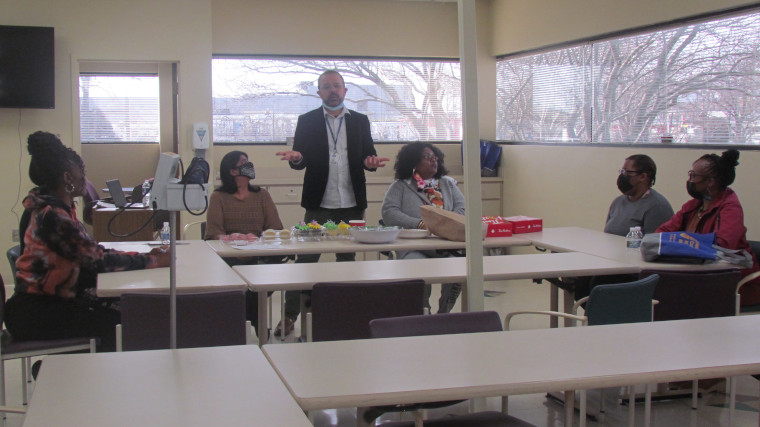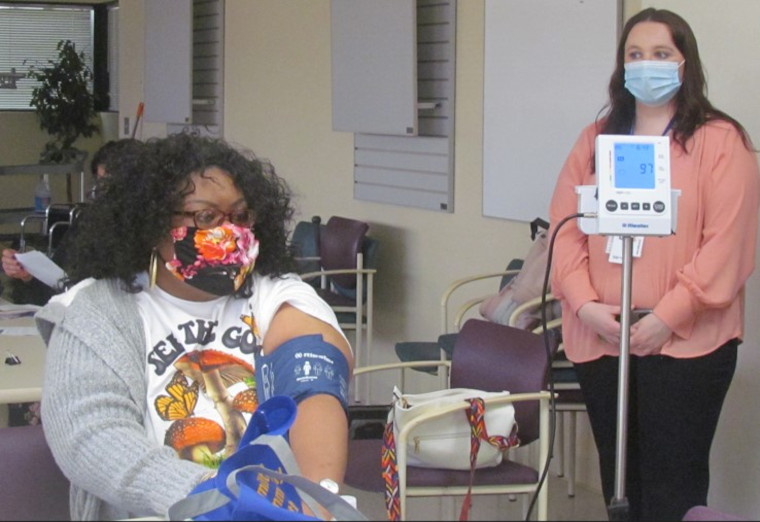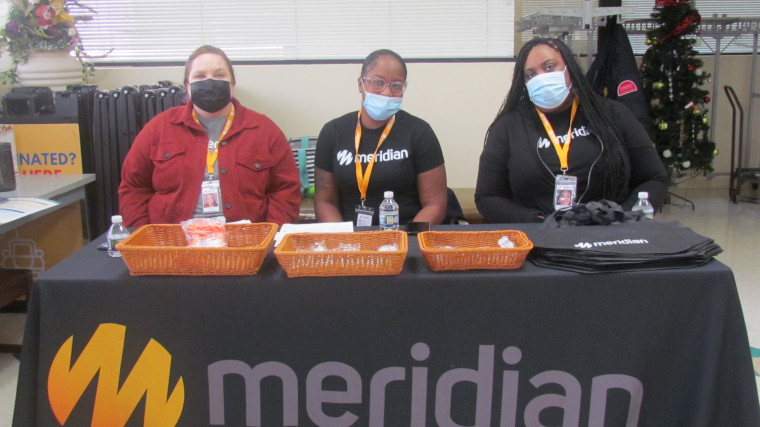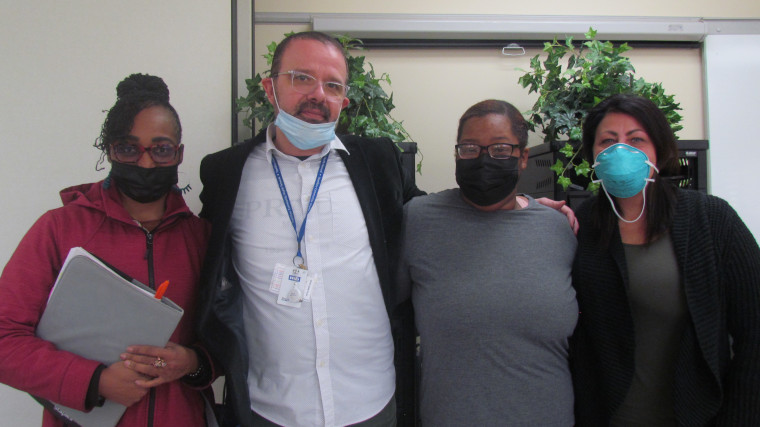Featured photo: (left to right) Marie Jones-Watts, Albert Ujkaj, Alexandra Washington and Alison Bunting
Written by Tanya Terry, with photos by Tanya Terry
Hamilton Community Health Network recently kicked off their behavioral health series “Happy Mind, Better Health.”
One participant told the Courier she experiences anxiety every day and panic attacks at least twice a week.
According to Albert Ujkaj, LMSW, MBA, director of behavioral health at Hamilton Community Health Network, anxiety and depression are the top two mental health diagnoses at Hamilton among those living with mental health challenges.
During his presentation, Ujakaj noted humans typically have at least 70,000 thoughts per day. He added unfortunately 90% of thoughts are repetitive, negative and false.
Thoughts lead to emotions, and emotions lead to chemical reactions.
“Mindfulness is changing that dialogue, slowing that thought process down,” stated Ujkaj.

Ujakaj showed a 10-minute video to those who attended the March 21 event. The video explains the reasonable mind is ruled by facts, reason, logic and pragmatics. In it, values and feelings are not important.
Emotion mind is ruled by moods, feelings and urges to do and say things. Facts, reason and logic are not important to it.
Wise mind refers to the wisdom inside each person and seeing the value of BOTH reason and emotion. It uses the left brain and right brain together.
“Wise mind also takes into account intuition,” said Ujkaj.
According to Ujkaj, a person cannot control when wise mind speaks. They can, however, encourage it to speak through practices such as mindfulness and breath exercises.
In one such exercise which Ujkaj explained, the Stone flake on the Lake Exercise, individuals are asked to imagine they are stone flake that sinks to the bottom of the lake. While there, the individual should observe what they see in their minds. They are asked to listen, but not give themselves answers. When breathing in, they ask themselves: “Is this wise mind?” When breathing out, they listen for an answer. If no answer comes, the individual is asked to try the exercise again, paying attention to the pauses as they breathe in and breathe out.
Ujaki used to work with veterans who had PTSD at a veterans’ hospital.
“They all had severe anxiety.”
Diaphragmatic breathing, a deep breathing technique, was used for the veterans. As part of the technique, the veterans inhaled into the diaphragm for five seconds, and then released for five seconds.
In addition, Ujaki talked about the importance of protecting your sleep.
“Sleep, sooner of later, that controls you blood pressure.”
Other tips to lower blood pressure, which African Americans in the U.S. have a higher prevalence of and a tendency to have more severe cases, are below.
- Eat a healthy diet that is low in fats and rich in fruits, vegetable, whole grains and low-fat dairy.
- Consume less than 1,500 mg./day of sodium (salt).
- Limit alcohol to no more than one drink a day for a woman or two for a man.
- Aim for at least 90-150 minutes of aerobic and/or dynamic resistance exercise per week and/or three sessions of isometric resistance exercises per week.
Flint Resident Tawana Riouse appreciated the part of the presentation that addressed the importance of sleep hygiene because she has trouble sleeping and has struggled with high blood pressure.

marketing and communications specialist for Hamilton Community Health Network stands to the right.
Riouse also enjoyed learning breathing techniques and said she planned to start a daily routine.
Riouse’s doctor, who works at Hamilton, had been talking to her about the correlation between physical and mental health.
Information about future series events, expected to take place quarterly, will be available on the Hamilton Community Health Network website, as well as on Hamilton Community Health Network’s and the Meridian Health Plan of Michigan’s Facebook and Instagram pages.

Meridian and Hamilton partnered to make the recent event possible.
For details on upcoming sessions, call 810-406-4246.


